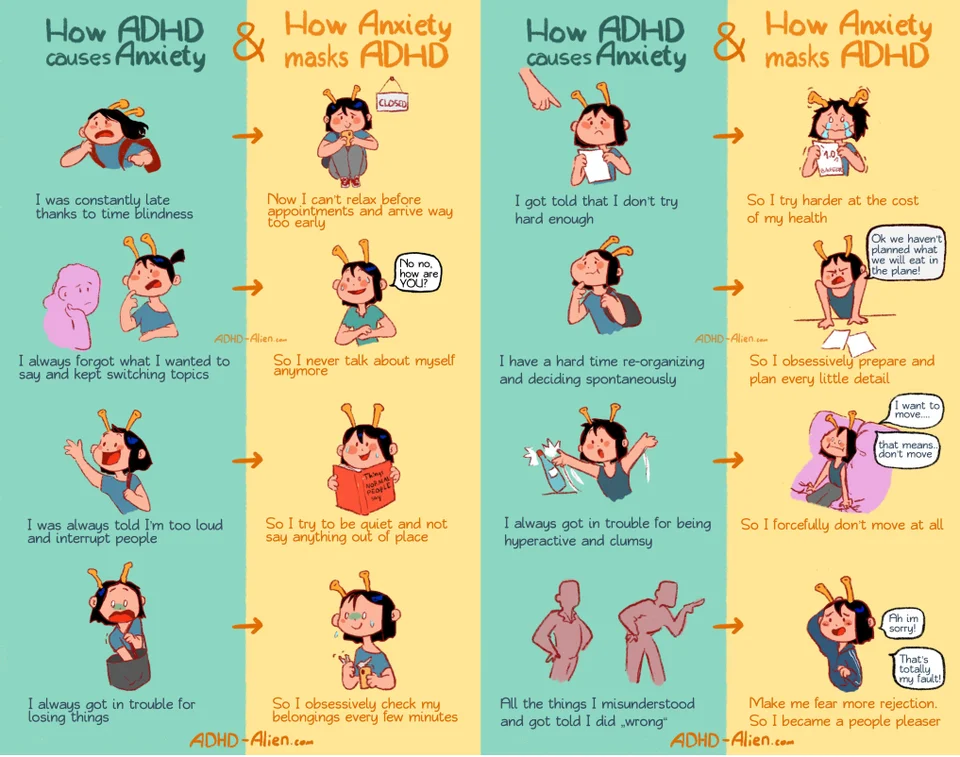Coping with an elderly parent
How to Cope with Aging Parents: Difficult Parents Advice
Dealing with Difficult Elderly Parents
As your parents get older, their needs get more intensive, which can add a lot of stress to your already busy life. Coping with elderly parents can be hard, especially when you have your own responsibilities to take care of. You love your parents—but you might not always know how to get them the care they need as they age.
We understand how challenging it is to provide aging parents with everything they need. It’s normal to feel anxious or even frustrated when you and your parents aren’t on the same page. Take a look at a few of these tips we’ve gathered for dealing with difficult elderly parents:
How to Cope with Aging Parents
1. Decide What Matters are Most Important
When you’re dealing with difficult parents, it’s important to choose your battles wisely. Not every problem is worth fighting over, so it’s crucial to differentiate between the matters that truly need to be addressed and the matters that are worth compromising on.
2. Try to Understand What’s Behind Abnormal Behavior
Rather than focusing on your own anger in difficult situations with your parents, try to identify the motivation behind their actions. When you try to understand your parents, you might find that their behavior is actually a result of something deeper.
3. Find an Outlet for Your Stress
Confide in your friends, siblings, or even a care manager to relieve your stress about your parentsis a great tactic for coping with elderly parents. It’s important to have a clear head when you interact with your parents, and having an outlet for your stress will keep you from taking your anger out on them.
4. Set Boundaries
Especially if your parents can’t always control their behavior, it’s necessary for you to decide how much bad behavior is excusable and whether or not a line needs to be drawn. Having a clear understanding of what you will and won’t tolerate will make dealing with difficult parents a bit less overwhelming because you’ll know when to step back.
5. Know Your Own Limitations
One of the most crucial things to remember when coping with elderly parents is that it’s okay for you to say, “No.” You can’t always change your parents’ minds, convince them to act differently, or solve their problems—so it’s important to know your limitations and call for help when you need it.
6. Limit Your Involvement in Caregiving
When coping with aging parents becomes too much, it’s time to look for outside help. Simple solutions like in-home caregivers or assisted living facilities will give you the opportunity to step back from difficult situations and love your parents without having to be their primary caregiver.
7. Plan Ahead
Your parents won’t be able to live alone forever—and if they’re stubborn or difficult, it won’t be easy to convince them to change their lifestyle. Planning for the future allows your parents to be a part of the process as you make arrangements for them as they age.
Is a Retirement Community Right for Your Parent?
When you’re dealing with difficult elderly parents, it’s easy to feel overwhelmed. At the end of the day, all you want to do is love them and provide them the best care possible—even when it’s hard. As you care for your aging parents, remember that there are plenty of resources available to help you out along the way.
At the end of the day, all you want to do is love them and provide them the best care possible—even when it’s hard. As you care for your aging parents, remember that there are plenty of resources available to help you out along the way.
Retirement communities often provide health services options for people who need them. This gives you and your parents some space, while still offering you peace of mind in knowing that your parents are being cared for. If a retirement community is a logical next step for your parents, you can start the process by finding some communities near you!
18 Tips for Dealing With Stubborn, Aging Parents
Have you watched your aging parents begin to decline over the past few months or years? It can feel scary, especially if you are watching them make decisions that you think aren’t the best for their situation. Dealing with elderly parents can also be frustrating, especially if they refuse your assistance or advice. However, if you can find a way to communicate with them that helps them maintain their own autonomy and independence, you can convince them to make the healthiest decisions possible.
Why are your aging parents making risky decisions? Because aging can be scary. Seniors often fear the unknown, including the loss of independence and the potential long-term effects of serious medical conditions. This fear may be why many seniors are resistant to seeking help and are sometimes even secretive about any new symptoms they experience.
There are a lot of factors at play when your parents make the decisions they do. Often, the way you approach them when giving your opinion can make a world of difference. The following tips can help you manage conflict as you navigate what to do with your aging parents in a way that is supportive rather than pushy.
18 General Tips for Dealing With Stubborn, Aging Parents
1. Be persistent.Patience and persistence go a long way toward making conversations productive when dealing with elderly parents. Don’t go in with the expectation that everything should be resolved in one sitting. You will probably have to bring up your concerns to your parents numerous times — so be patient.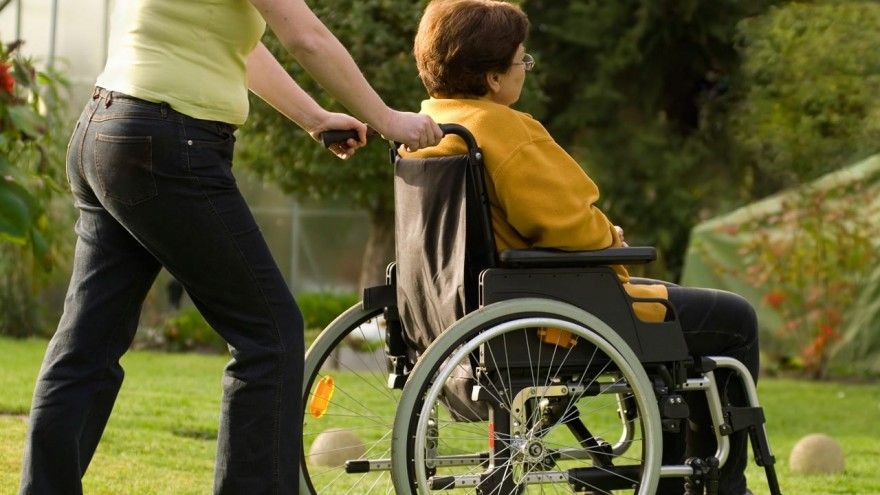 Bombarding the senior you love with too much information in a single conversation can needlessly trigger their fear of losing control. And if your loved one has dementia or a cognitive impairment, they may be unable to take in too much information at once.
Bombarding the senior you love with too much information in a single conversation can needlessly trigger their fear of losing control. And if your loved one has dementia or a cognitive impairment, they may be unable to take in too much information at once.
Don’t push, nag, or harangue your parents. Giving ultimatums will only get their backs up, and yelling, arguing, slamming doors, and so on could seriously damage the relationship. Instead, empower your loved one by making them a part of every decision-making process. Validate their emotions and show them that you value their opinions.
3. Be sensitive.Criticism and judgment can put your parents on the defensive. Bluntly telling Mom and Dad that they don’t know how to manage their own lives will not win them over. Instead, stick to “I” statements, such as, “I’m feeling concerned because you look like you’re losing weight and I’m worried that you’re not eating enough.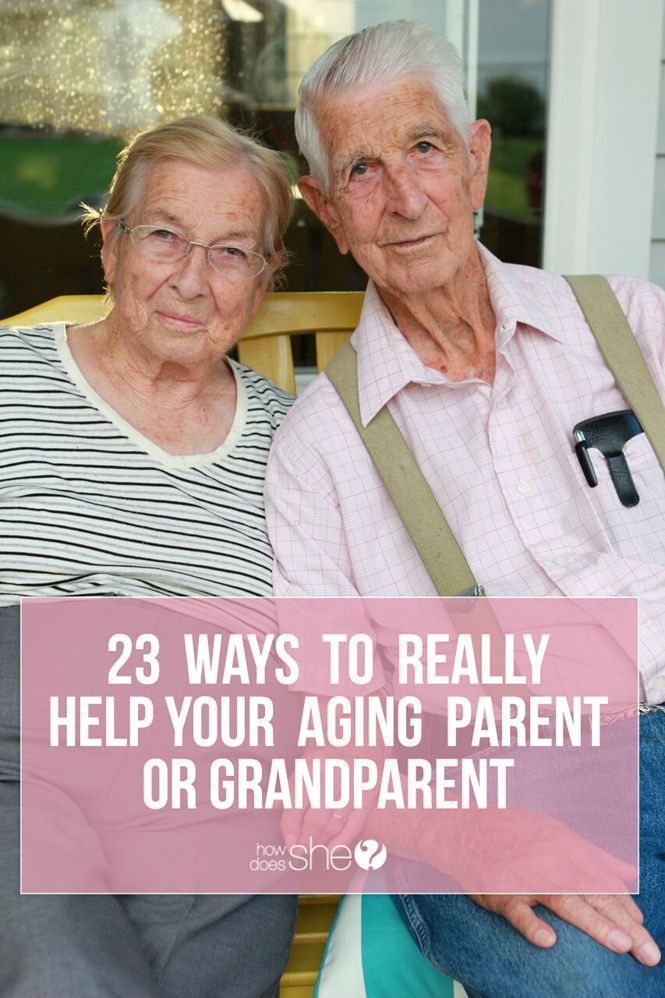 ”
”
Productive conversations never happen when everyone is feeling stressed out or exhausted. Make sure you choose to have challenging conversations on days when your parents are feeling relaxed rather than depressed or anxious. That goes for you, too — avoid talking when you feel particularly stressed because your anxiety will only add to their fear.
5. Stay calm.On some level, your parents may be aware that they are facing some new challenges, so avoiding discussions about their future might seem safer to them than admitting to reality. Stating your concerns calmly and speaking with love and tenderness can help reassure them that change will be OK.
6. Seek outside help — for yourself.Dealing gently with stubborn aging parents may not come easily if you yourself feel frightened, helpless, and frustrated. If this is the case, please divert some of your caregiving energy to yourself and get some outside support, be it a meditation group, a counselor, or a support group.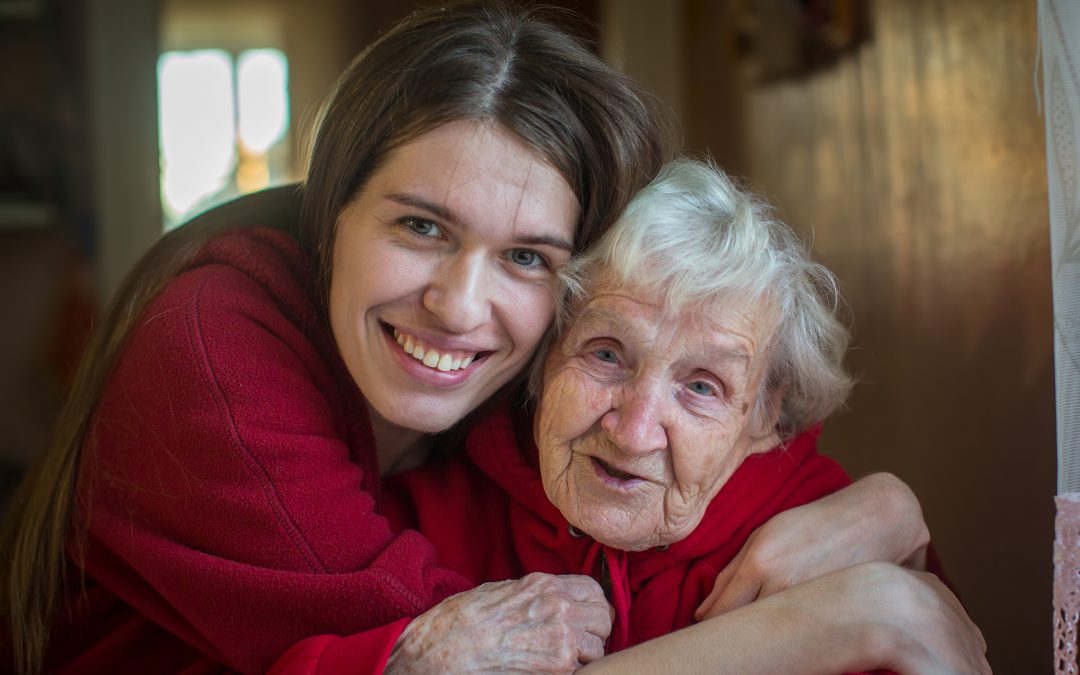
Although you may not have much extra time on your hands, try spending a little more of it with your parents (that is, if the relationship is not a source of conflict). As your parents continue to age, they will likely appreciate a little more attention. Your interactions might even become more harmonious if they know you are prioritizing the relationship instead of squeezing it into a hectic schedule.
8. Ask questions.Instead of talking at your parents, talk to them by involving them in the conversation. Start by asking open-ended questions (e.g., why don’t you want your cousin Mary to come in and fix your meals?). In a best-case scenario, this approach may allow them to reflect upon their situation and conclude that a change really is in order.
9. Come up with solutions.Focus on addressing your parents’ concerns rather than telling them what to do. Commit to doing your research, and if you don’t have an answer, don’t make one up. The goal here is to cultivate trust and foster a spirit of mutual support and cooperation.
Commit to doing your research, and if you don’t have an answer, don’t make one up. The goal here is to cultivate trust and foster a spirit of mutual support and cooperation.
Always focus on the benefits of your proposed solution. For instance, if you see assisted living as the answer, emphasize the variety of social and recreational activities that these communities offer.
11. Bring in other family.Remember, caregiving is a large responsibility, one that you shouldn’t have to take on alone. If you have siblings, schedule a family meeting to talk about your concerns or ask them to talk to Mom and Dad. Just make sure that you see eye to eye on the important issues.
12. Enlist the support of friends.Consider scheduling a family meeting that includes a close friend or neighbor. Sometimes it can be easier to hear the truth from someone outside of the family.
13. Talk to their doctor.
Talk to their doctor.If all else fails, contact your parents’ doctor and let them know about your concern for your parents’ well-being. In the end, a medical professional may be the one person whose advice your parents will heed.
14. Outline the consequences.If your parents are still bound and determined to stay in their four-bedroom house or to keep driving, calmly let them know about the possible consequences of their actions. Don’t frame things in punitive terms or talk to them like they’re children. Instead, remind them that their actions extend beyond the family. “Mom, I love you and want you to be independent, but I also don’t want that independence to come at the cost of hurting someone because of a car accident you cause" can be a potent wake-up call.
15. Don’t count on them changing.Ultimately, there may be nothing you can do to change a parent's mind. Remember, your parents are grown adults who have the right to make their own decisions, and sometimes the best thing you can do is to honor their wishes.
When approaching your loved one, listen not only to what they are saying but also to what they may not be saying. For example, they may be afraid to move to assisted living because they are worried about making friends. They may be resisting visiting the physician because they fear what their doctor may say about their condition. Many times, fear or anxiety is the underlying culprit of their behavior.
17. Accept the situation; don't beat yourself up.It is difficult to watch your loved one face challenges caused by aging, especially if they are not receptive to help. However, you can only do so much convincing and pleading to change their minds or get them to explore new options. Work with your own counselor or support group to accept the situation for what it is and know what you cannot change (and what you can).
18. Treat your aging parents like adults.
Your parents are still your parents, and it can feel jarring to them and to you if you begin treating them like the child in the relationship. Remember that your parents are adults and they deserve to be treated as such. During your conversations, focus on empowering them and giving them plenty of choices and input into every decision.
How to Deal with Stubborn, Elderly Parents — Specific Examples
Anger, Hostility, and Outbursts
If you are met with anger or hostility when you approach your loved one about your concerns, it can feel like a personal attack. However, the more you know about the potential causes of that anger, the more you can not take it personally and get any follow-up care your loved one may need.
Potential CausesIf your loved one has always been a bit cranky or set in their ways, challenges of aging will typically only amplify those traits.
SolutionThe aging process is not easy and can cause frustration in seniors. Having a bit of empathy and putting yourself in their shoes can soften your approach and help you not take any attacks personally. When possible, take advantage of respite care solutions so you can take a break from your caregiving role and re-enter the role with a renewed perspective.
Having a bit of empathy and putting yourself in their shoes can soften your approach and help you not take any attacks personally. When possible, take advantage of respite care solutions so you can take a break from your caregiving role and re-enter the role with a renewed perspective.
Sometimes, anger and stubborness can turn into abusiveness. Here is why that can happen and how to face it in your caregiving role.
Potential CausesAbusive behavior occasionally occurs in older adults. Sometimes, this behavior stems from a mental health issue that your loved one has lived with for years. In this case, you may already have some coping skills in your personal mental health toolbox that can help you navigate the situation. However, if abusive behavior is new, this can indicate a change in mental health or cognition.
SolutionTry explaining how their behavior makes you feel. You can also leave the situation as long as your loved one is safe before you go. Finally, consider respite care to give you the break you need and deserve.
Finally, consider respite care to give you the break you need and deserve.
Refusing personal care, especially showering or bathing, is quite common in older adults, especially if they are living with Alzheimer’s disease or another type of dementia.
Potential CausesThere are a variety of reasons why your loved one may be refusing to shower. It might feel too vulnerable or scary for them, and declining vision or cognition can only increase that fear.
SolutionAs with anything dealing with dementia, focus on working with your loved one’s physician to determine what could be causing the resistance to showering. It could be a mix of anxiety and depression, or it could be a part of their dementia progression.
Consider helping your loved one remain modest in the shower by using towels to maintain privacy. Waterless shampoo and soap is also a good way to maintain good hygiene while skipping a shower every once in a while.
Cognitive decline is often the reason behind seniors making offensive comments or using inappropriate language. However, it can still be jarring for adult children or caregivers to hear, even if they’re aware of the source.
Potential CausesWhen seniors begin using new inappropriate language or offensive comments, it is often because they are in pain, frustrated, or reaching a new stage in their cognitive decline. A sudden personality change could also point to an infection.
SolutionIgnoring the behavior is sometimes the best solution. You can also call out the behavior and say you do not like it when they do that. However, if your loved one has dementia, it is important for you to note that they will likely not be able to remember your direction or consequences.
Paranoia, Delusions, and HallucinationsIt is startling to watch your loved one experience delusions or paranoia. Cognitive decline is often the reason why it happens, but it is also possible that your loved one is experiencing a medication side effect.
Cognitive decline is often the reason why it happens, but it is also possible that your loved one is experiencing a medication side effect.
Medications can cause paranoia, hallucinations, and delusions. Be sure you speak to your loved one’s physician or pharmacist to talk about these types of side effects. Dementia and infections, such as a UTI, can also cause this type of behavior.
SolutionWork with your loved one’s medical team to discover the underlying cause of the delusions or paranoia. Once you are able to discern if it is a dementia side effect, an infection, or a medication issue, you can begin to make the appropriate changes.
HoardingWhen you hear the word hoarding, it is easy to think of the seriously dangerous situations that make it into TV shows. However, hoarding doesn’t have to happen on a cinematic scale to be something serious that must be contended with. It can range from keeping clutter in a drawer or refrigerator to creating a fall hazard with boxes lining the hallway.
It can range from keeping clutter in a drawer or refrigerator to creating a fall hazard with boxes lining the hallway.
The compulsion to hoard or collect items can stem from dementia as well as anxiety. It can point to a need for control or a desire to save memories, or it can just as easily be an instinct caused by cognitive decline.
SolutionHave small cleanout days once a week when you go into your loved one’s home and quietly remove items. Be sure to check the fridge and cabinets if your loved one hoards food because doing so can cause sanitation issues in the long run. If your loved one has dementia, creating a rummage drawer or box full of small items can often dampen the urge to hoard.
Refusing to Accept CarePotential CausesIf your loved one simply refuses to let you help at all, they are likely feeling embarrassed about their declining health or increasing needs. They may also not want you to take on that burden.
They may also not want you to take on that burden.
Speak candidly with your loved one so you can find ways they will let you help. It can also be helpful to get your loved one’s physician and counselor involved in the conversation. In many cases, your loved one may accept help from others more easily than from you, so begin to look at home care or senior living solutions that will provide the help they need.
Extreme Frugality or OverspendingPotential CausesIt is common for older adults to worry about outliving their money, especially when they are on a fixed income. Unfortunately, this anxiety can sometimes lead to dangerous behaviors such as refusing to turn on the air conditioning or not filling certain medication prescriptions.
SolutionWork with your loved one and their financial advisor to develop an “essentials” budget that includes items that keep them safe. If you feel that your loved one is making poor financial decisions because of dementia, get their physician involved.
If you feel that your loved one is making poor financial decisions because of dementia, get their physician involved.
When it comes to learning what to do with an aging parent, turning to experts can often be the best first step. Senior living communities, for example, are staffed with team members who have worked with older adults and their families for many years. These team members are there to educate you about senior health topics, offer communication tips, and provide outstanding care for your loved one as they need it.
Ready to learn more? Download our free resource, “The Journey to Senior Living: A Step-By-Step Guide for Families,” to begin learning more about senior living and how it might be the solution to providing your aging parent with the support they need without compromising their independence.
How to communicate with elderly parents: 10 simple rules
Third age
Elena Dolzhenko
December 15, 2016 15:09
Sasha Galitsky is an artist and art therapist from Israel. For the past 15 years, he has been running wood sculpture and drawing studios for people aged 70 to 100. Recently, Galitsky gave a master class in Moscow and told how to communicate with very elderly parents and grandparents.
For the past 15 years, he has been running wood sculpture and drawing studios for people aged 70 to 100. Recently, Galitsky gave a master class in Moscow and told how to communicate with very elderly parents and grandparents.
Do not expect pleasure from communication
If you don't wait for the pleasure of interacting with elderly relatives, the likelihood that you will still get it increases. You can get pleasure from yourself. For example: if I have a difficult conversation with a parent, I must restrain myself from my own anger. One second it will be hard for me, and the rest of the time I will enjoy the fact that I restrained myself. This is such a child's game, which is called "weak": Weak hold on? Weak not to get angry?
I have been working with older people for the last 15 years. When they start eating me, I try to restrain myself, and then I understand that there is no one to be offended with: it's not just our parents, it's us with you in 20, 30, 40 years.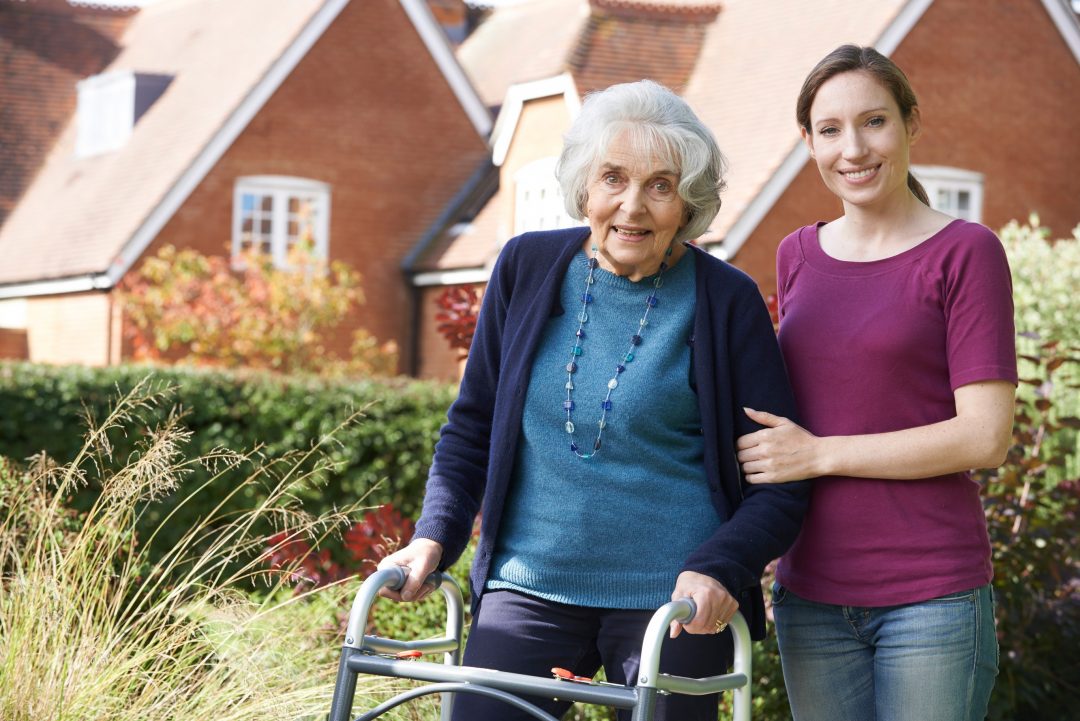 nine0003
nine0003
Steer
We are used to being controlled by our parents. They are strong people, and they will give advice and help. But suddenly there comes a moment when you need to take the helm: now you are strong and must control the situation.
They want us to be successful. If I come to my parents and start complaining, they can no longer help me. Therefore, I separated two truths: there is a good truth and there is a truth that it is better for them never to know. Our well-being is the key to their success, this must be remembered all the time. nine0003
Don't try to change them
When we were little, adults fed our brains with stories about the boy next door who learns better and obeys his parents. When they become elderly, we begin to answer them in the same way: “Look, your neighbor walks every day, and you sit at home all day long.” We are trying to fix them, although we need to accept them as they are.
No need to try to cram something into them, they are no longer subject to modernization. We can only accept them. If a person smoked before the age of 80, most likely he will not quit. As one of my charges jokes: “I do breathing exercises until I run out of cigarettes.” nine0003
We can only accept them. If a person smoked before the age of 80, most likely he will not quit. As one of my charges jokes: “I do breathing exercises until I run out of cigarettes.” nine0003
Know their "technical specifications"
We need to know exactly who we are dealing with. It is necessary to understand what a person who does not see, does not hear, and cannot get up is. To understand what a blind person is, try to find yourself in his place: at least draw in the dark.
Every day our older relatives see their opportunities diminish. A super-successful man of 80-something years old comes to my lessons - in the past a businessman, the creator of a chain of stores in Israel. He comes up to me with tears and asks: "Will you help me?" He suffers from a constant decrease in his strength. nine0003
They struggle with stress. One of my students wears a device like a metal cot on his back, with which he walks all day and which holds his spine. At night, he removes this structure, but he can no longer turn around.
Another of my wards once asked if he could sit not to the right, but to the left of a neighbor. It turned out he didn't like the way the neighbor sang. When I asked what difference it makes which side to sit on, he replied: "I can't hear with my right ear anymore." We need to try to understand and consider these things. nine0003
Imagine for a moment that your parents are gradually moving their mode from autopilot to manual control. They start taking pills by the hour. Average life expectancy is now 80 years. 5 of them a person is sick and needs help for a couple of years. You just need to accept it and understand: okay, this is a normal story, the price of a long life.
Do not enter into a conflict
I myself studied this for a long time. There is an armor-piercing projectile that pierces any skin: "I was at your age, but you are not yet mine." And indeed it is. nine0003
Older people's aggression comes from dissatisfaction with themselves. When you accept the cause of aggression, when you smile at an elderly relative and do not respond to his attacks, aggression subsides.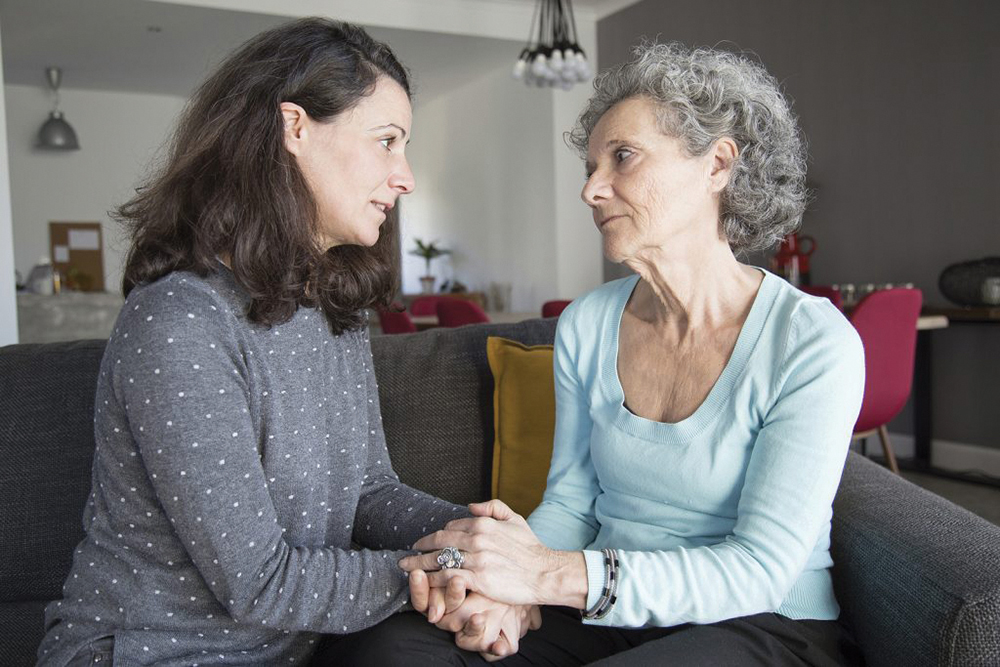 If he answered, he disappeared.
If he answered, he disappeared.
Of course, you need to be able to change topics of conversation, change the vector. Try, for example, in a calm situation in a conversation with your parents, take and change the subject. This exercise will help you in conflict situations.
Compassion but not pity
Compassion is a very important thing. Moreover, it is necessary to distinguish between compassion and pity - this is heaven and earth. Pity disarms us: pitying a person, we, as a rule, cannot help him in any way. And compassion can be different, including cynical or active. nine0003
Don't argue
There are many times when you really want to answer. One of my students made me buy a heavy board, we sawed a sculpture out of it for two years. She later complained about me to everyone: look what a hard job he gave me. I heard all this and did not answer. I can't remind her, "You asked me to do this," she just doesn't remember it. When you understand who you are dealing with, everything becomes much easier. You receive negative energy, process it in yourself and give it back positive. nine0003
You receive negative energy, process it in yourself and give it back positive. nine0003
Manage impressions
When we are young, we have a lot of impressions, and as we get older, they become less and less. Everything that distracts the elderly from an unhappy lifestyle is very important. They sit on benches in front of houses and discuss their neighbors precisely because they lack impressions.
When we touch on the topic of how to protect old people from scammers, all advice is related to strengthening the defense: put an iron door, a camera, forbid them to approach the door. In fact, the answer is very simple: they need to be occupied. nine0003
You need to look closely at a person, slip him something. If you want the old man to leave early, just put him on a chair and start blowing off the dust - he won't stay long. My aunt, for example, liked to reprint Pushkin's poems on an old computer. Or another friend of mine - an 80-year-old grandmother - no longer hears anything, but swims in five styles in the pool. It is good when there is communication with grandchildren - the main thing is that this does not harm the grandchildren.
It is good when there is communication with grandchildren - the main thing is that this does not harm the grandchildren.
Students come to me and say: how quickly time has passed, I did not notice. 40 people come daily. When interaction begins between them, this is also an exchange of impressions. They are discussing me as well - this is normal. One of the wards told me: "You are like two glasses of vodka to me." nine0003
Impressions are different, not always good. One day, my clients dragged chairs out onto the balcony and watched a person being pulled out of the pool and taken away in an ambulance - this is also an impression. We can try to make sure that the impressions are only good, but we are not omnipotent.
Do not blame yourself
Guilt haunts everyone. No matter what happens, there remains a feeling that you didn’t finish it, didn’t finish it, behaved incorrectly with your parents. You don't have to blame yourself. Time is to blame. This is a closed cycle that does not depend on us. nine0003
nine0003
One must understand that a person who approaches the border of life and death, first of all, turns inward and tries to put his past in order. I talked with many elderly people who remember what happened 40-50 years ago and try to sort it all out. Memory is built like a bottle of sand. When you turn it over, the events of yesterday fly away immediately, and mom and dad remain at the bottom. People go into themselves, and we are not to blame for this, we must understand this, come to terms with this and try to give them as much as possible. nine0003
In any case, you need to take care of yourself. We must learn to rest. If you constantly live the life of an elderly person, in the end you will remain guilty: you will be blamed for not working out for you. Why did not you marry? Why didn't you give birth to children?
Forgiveness
One must learn to leave grudges in the past. It's like a computer - you reboot it and start working again. If today you have not forgiven your grandfather, tomorrow - it may happen - he will no longer be.
I improved my relationship with my mother after leaving some topics open. When I was 20, I thought: now I will explain a little and she will understand. She didn't understand. Therefore, I learned not to close topics, but simply step over them.
But in order to forgive, one must have strength. There are many recovery techniques: you can meditate. Personally, I came up with the “5 minutes” technique for myself: I just leave the room, sit for five minutes and don’t think about anything. Then I return with renewed vigor so that I can again have the opportunity to sympathize. nine0003
One of my main commandments is to know how to make them laugh. A cheerful old man is not dangerous.
Sasha Galitsky's next master class will take place at the end of February.
tell your friends
tags
third-age societyparentselderly people
Dealing with toxicity in older parents - expert advice - Teachers' newspaper
0119 in the process of communication make others feel uncomfortable. It would seem unethical to apply such a definition to the dearest people - parents. But sometimes, when they "in the best of intentions" make the life of their own children unbearable, it is difficult to find a more appropriate word.
It would seem unethical to apply such a definition to the dearest people - parents. But sometimes, when they "in the best of intentions" make the life of their own children unbearable, it is difficult to find a more appropriate word.
Adults of all ages experience psychological problems with their parents – both those who have just started a family and children, and the elderly who already have their own grandchildren. In addition, with age, many - both children and parents - become grouchy, suspicious and less tolerant. How do experts advise building relationships with parents if there really are problems in communication? The opinions of experts were shared by the publication "Life". nine0003
According to psychologists, it is not uncommon for a mother of a 35-year-old daughter to suddenly start telling her what a bad wife she is and that her husband should go to another. And once an active father ceases to be interested in grandchildren, as well as in general with anything other than TV. In such situations, experts advise keeping in mind that a large proportion of parents in old age begin to show toxicity in behavior. After about 60 years, many begin a period of internal torment. At the same time, everyone experiences them individually. If earlier in a person’s personal life everything was smooth, then in old age he feels most satisfied. nine0003
In such situations, experts advise keeping in mind that a large proportion of parents in old age begin to show toxicity in behavior. After about 60 years, many begin a period of internal torment. At the same time, everyone experiences them individually. If earlier in a person’s personal life everything was smooth, then in old age he feels most satisfied. nine0003
According to Olga Mezhenina, a family psychologist, if a woman feels loved and happy in adulthood, then she is more harmonious in old age. If in her younger years she devoted herself completely to children, then over the years her exactingness towards them only increases. Hence - possible conflicts in the choice of partners by adult children, endless negative comments and persistent advice. In such situations, it is very difficult to set psychological boundaries with parents.
In addition, with age, most of us become touchy and vulnerable, the psyche ceases to be flexible, as in youth. Reputation is no longer as concerned as in youth - so it is not uncommon for a person to become sloppy and scandalous.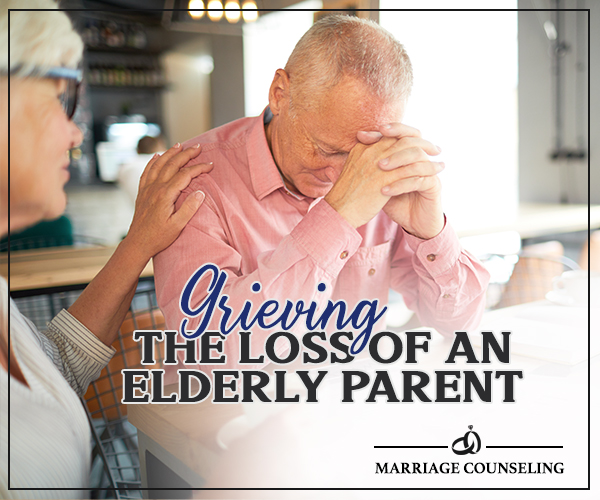 Young people do not yet realize how people in old age gradually lose strength and change their view of the world. nine0003
Young people do not yet realize how people in old age gradually lose strength and change their view of the world. nine0003
It is better to dose information for elderly parents
Elderly parents worry about their adult children more acutely, because they feel that they will no longer be able to help them. Indeed, in youth it seems to a person that he has a lot under control, that he is able to resolve most problems and protect his children. However, when health fades and social opportunities melt away, sensations change.
So psychologists recommend keeping this in mind and not giving out all the information about life events to parents. They need more positive news. It is also good to share minor problems that parents can help or give advice on. It is better to leave more significant problems to yourself and solve them yourself. nine0003
It is worth learning how to extinguish conflicts and not allow yourself to be manipulated
Often parents resort to blackmail or threats in order to get what they want from adult children. In such situations, you need to take the position of an adult: to separate the real needs of the parent from the manipulation attempt. According to psychologist Olga Torletskaya, manipulation should not be allowed. However, you need to remain lenient. It would seem that this is easy to say - in reality, it is not very clear how to do this. Here you can turn to a simple exercise offered by psychotherapist Ekaterina Sokalskaya. It is useful for those whose process of separation from their parents has not yet taken place or has not gone as smoothly as we would like. nine0003
In such situations, you need to take the position of an adult: to separate the real needs of the parent from the manipulation attempt. According to psychologist Olga Torletskaya, manipulation should not be allowed. However, you need to remain lenient. It would seem that this is easy to say - in reality, it is not very clear how to do this. Here you can turn to a simple exercise offered by psychotherapist Ekaterina Sokalskaya. It is useful for those whose process of separation from their parents has not yet taken place or has not gone as smoothly as we would like. nine0003
By the way, the process of separation is extremely important - not only for building relationships with the older generation, but also for building your own family and, of course, for health - no one has canceled psychosomatics. The suggested exercise is this: take photos of your parents. Put them in front of you and mentally (or aloud) thank them for giving you life, raising and investing their mental and physical strength in you, for giving you genetics and a body. It is worth stopping at this: everything else is given to you by nature - you can imagine it in the person of God and the Universe. So after the words of gratitude, it’s mentally worth saying that although you are grateful to your parents, “you are not from them, but from nature, which has its own plans for you.” This will allow you to gradually psychologically separate from them and feel your own personality. nine0003
It is worth stopping at this: everything else is given to you by nature - you can imagine it in the person of God and the Universe. So after the words of gratitude, it’s mentally worth saying that although you are grateful to your parents, “you are not from them, but from nature, which has its own plans for you.” This will allow you to gradually psychologically separate from them and feel your own personality. nine0003
According to the psychotherapist, the psyche of a patient who comes to see him, because of a bad relationship with his parents, generates these uneasy relationships and seems to say to him: "Get away from your mother." So it is important to understand that a person can be completely different from relatives in their aspirations, interests, abilities and task. Someone is lucky: he has a lot in common with his parents. And someone is the opposite of them by nature. It is necessary to be aware of your individuality and respect it, not to allow it to be raped. The more often a person rapes himself, trying to be comfortable, the more nature speaks to him in the language of illness. Therefore, it is extremely important to respect your psychological boundaries. nine0003
Therefore, it is extremely important to respect your psychological boundaries. nine0003
Don't respond to attacks. Eliminate the conflict by changing the topic of conversation
If your parents start talking to you in a raised voice and start to make a fuss and get nervous, experts recommend not to enter into an argument, but to transfer the conversation to another subject. You can ask some question on an extraneous topic. For example, why you can't see your neighbors for a long time. The most successful way is to turn everything into a joke and make the parents laugh. But for many, this is aerobatics.
Photo: pixabay.comAnti-stress
Psychologists say that in old age the ability to adapt to the situation decreases, to resist new experiences and problems. Everything is taken to heart. No wonder old people are compared to children. However, children have psychological protection, and the elderly have such low stress resistance that they are constantly worried and often experience total fear.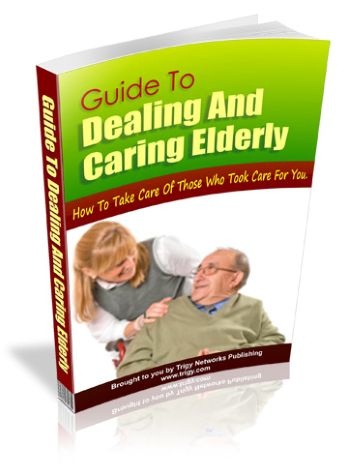 It is already difficult for them to decide to buy an expensive thing, they are afraid to disturb someone once again. As psychologist Olga Mezhenina notes, there is a feeling that a person no longer owns the situation, cannot control it, and sometimes does not have the strength to physically endure it. As a result, anxiety leads to the fact that new conditions and others begin to annoy. So the right decision would be to treat elderly parents and relatives like children - after all, they are not irritated specifically with you, their irritation is just an expression of powerlessness and fear. They want protection, but because they are adults, they are not comfortable asking their children for help. This leads to internal conflict. It is good if the children themselves often offer help. nine0003
It is already difficult for them to decide to buy an expensive thing, they are afraid to disturb someone once again. As psychologist Olga Mezhenina notes, there is a feeling that a person no longer owns the situation, cannot control it, and sometimes does not have the strength to physically endure it. As a result, anxiety leads to the fact that new conditions and others begin to annoy. So the right decision would be to treat elderly parents and relatives like children - after all, they are not irritated specifically with you, their irritation is just an expression of powerlessness and fear. They want protection, but because they are adults, they are not comfortable asking their children for help. This leads to internal conflict. It is good if the children themselves often offer help. nine0003
Do not drag parents into stressful situations
Psychologists also advise against dragging elderly parents into situations in which they will be confused, this will only cause irritation and lead to resentment or scandal. If you called a master or plumber for them, you should check their work yourself. If the elderly need an expensive thing, you need to help them with the choice. Going to the bank, state-owned stores can be a real stress, especially if you need to master modern technologies there. In such situations, the elderly need help. nine0003
If you called a master or plumber for them, you should check their work yourself. If the elderly need an expensive thing, you need to help them with the choice. Going to the bank, state-owned stores can be a real stress, especially if you need to master modern technologies there. In such situations, the elderly need help. nine0003
Don't try to re-educate your parents
They will not part with the habits that have already become part of their lives. If mom embroiders or collects some meaningless, in your opinion, things, you should not demand an answer from her, where will she put all this. This is her world, and its boundaries should not be violated.
Problems are better solved together - do not give in to pity
With older parents, it is important for children to take the position of a wise and patient adult. Parental “whims” are not an expression of anger, but a need for your attention and assertion of their own significance.









